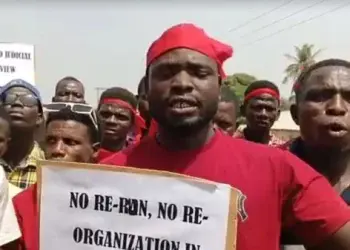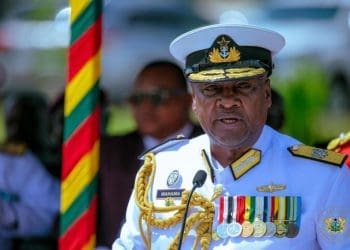Explore the history of mass presidential pardons to prisoners between 2016 and 2025. Over the past decade, Ghana has witnessed a series of presidential amnesties aimed at easing prison congestion and addressing humanitarian concerns.
The amnesty granted to prisoners across the country follows the recommendation of the Prisons Service Council, in consultation with the Council of State, and under Article 72(1) of the 1992 Constitution.
Between 2016 and 2025, almost 3,500 prisoners have been released under presidential amnesty, reflecting recurring themes of prison decongestion, public health, and reintegration opportunities.
Key amnesty figures:
In July 2016, President John Mahama freed 896 prisoners. The freed prisoners include first-time offenders, those seriously ill, inmates aged 70 and above, those with special cases such as amputees, as well as prisoners on death row whose sentences have been commuted to life imprisonment.
A press release signed and issued by then Minister of Communications, (late) Dr Omane Boamah, said out of the number freed, 813 were first-time offenders, 16 were seriously sick, 63 were aged 70 and above and a prisoner who is a double amputee.
In addition, he said, three prisoners on death row whose sentences were commuted to life imprisonment had also been freed.
In March 2020, Nana Addo Dankwa Akufo-Addo granted amnesty to 808 prisoners. The categories of convicts affected are as below:
- First offenders – 783
- Seriously ill – 11
- Inmates on death row now to be commuted to life imprisonment – 7
- Inmates serving life sentences to have sentences commuted to 20 years’ definite term – 4
- Very old prisoners 70 years and above
The statement explained that the first offenders, totalling 78,3, who have served half of their sentences, 11 seriously ill prisoners, and three aged (very old) prisoners are to be released outright.
However, it added that seven prisoners on death row would have their sentences commuted to life imprisonment, while four prisoners serving life sentences will be commuted to 20 years’ definite term.
In July 2020, Nana Addo again freed 794 prisoners. A statement signed by Patrick Darko Missah, Director General of Prisons, on Thursday, July 2, 2020, said: “The president of the Republic His Excellency Nana Addo Dankwa Akufo-Addo in consultation with the Council of State, in commemoration of workers day 1st May 2020 and in a bid to mitigate the dangers posed by congestion in the prisons, especially in the wake of the COVID-19 pandemic, has by Article 72 (1) of the 1992 constitution, granted amnesty to seven hundred and Ninety For (794) deserving prisoners.”
The categories of convicts affected are as follows:
- First offenders, 772
- Very old prisoners (70 years and above)
- 16 seriously ill, 4 death sentences commuted to life imprisonment
- The first offenders, totalling 77,2, who have served at least half of their sentences
- 16 very old prisoners and 5 seriously ill prisoners are to be released outright
On Monday, August 18, 2025, President John Mahama granted presidential amnesty to 998 prisoners nationwide.
The decision was confirmed in a statement issued by the Presidential Spokesperson and Minister of Government Communications, Felix Kwakye Ofosu.
According to the statement, Mahama granted amnesty to the following prisoners:
- First-time offenders – 787 persons
- Death sentences commuted to life imprisonment – 87 persons
- Life sentences commuted to 20 years’ definite term – 51 persons
- Seriously ill prisoners – 33 persons
- Prisoners over 70 years, irrespective of offence – 36 persons
- Nursing mothers – 2 persons
- Petition cases – 2 persons
These pardons, typically announced during significant national moments or in response to pressing challenges such as overcrowding and public health crises, have provided thousands of inmates with a second chance at rehabilitation and reintegration into society.
The largest single amnesty within this period occurred in August 2025, when former President John Dramani Mahama granted freedom to 998 prisoners, surpassing earlier mass releases.
Ghana’s prisons, often plagued by overcrowding, inadequate healthcare, and limited resources, have been under scrutiny by civil society organisations and human rights groups.
The amnesties, while not a permanent fix, are seen as vital interventions to reduce strain on the correctional system and promote dignity for inmates.
In total, these mass pardons represent an important policy tool in Ghana’s criminal justice system—balancing the demands of law enforcement with humanitarian obligations.












